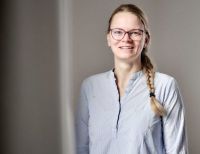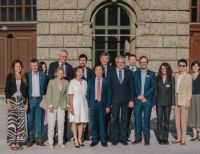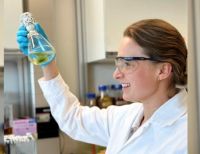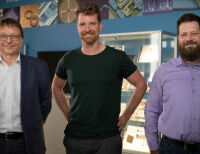Should he study history or physics? As a teenager in Athens in the 1970s, Konstantinos Boulouchos was interested in so many things. But while the humanities seemed a bit of a dead end, he was told a physics degree was only good for becoming a teacher, an idea he didn’t quite like either. “And today I find nothing more important than educating young people,” laughs Boulouchos.
The ETH professor is full of enthusiasm when he talks about his students. As a young professor, he says, he hadn’t yet recognised the importance of open and good communication. Today, he knows that everyone has their own story. Those who are absorbed by their own issues, for example, might not be able to perform as well. It’s important to talk about things, because this is the only way to provide effective support. He goes on to say that his students shaped him and helped him to develop – and he hopes he did the same for them. Judging by his former students’ numerous awards and careers, this is certainly the case.
But first, back to the beginning. Born in Chalkis in 1955, Boulouchos decided to study mechanical engineering at the National Technical University of Athens and came to ETH in 1978, where he completed his doctorate in thermodynamics and combustion engines in January 1984. Following a period of research at Princeton University, Boulouchos returned to ETH Zurich in 1988, where he researched computer-aided simulation methods and non-contact, mostly laser-optical, measurement techniques. It is this combination of experimental approaches and simulations that led to his appointment as Head of the Combustion Research Laboratory at the Paul Scherrer Institute (PSI) in 1995, and his coordination of the joint programme for combustion research by ETH Zurich and PSI until 2005.
What influences thinking
Switzerland has long since become a second home for the professor, who has held Swiss citizenship since 1997. Where does Boulouchos see the biggest differences between Greece and Switzerland? Naturally, in Switzerland everything is more orderly and structured and hence more reliable, he says. But at the end of the day, we are all Greeks, says the professor with a smile. He means this philosophically, like so much of the conversation: “The Greeks Aristotle, Heraclitus and Democritus influenced all our thinking. Logical methodology, the empirical testing of established opinions and doctrines dominate not only, but of course especially, the world of science.” For him, however, it was vital to supplement the thinking of the ancient Greeks with ideas from Eastern philosophy. What particularly fascinates Boulouchos, who loves Japan, is thinking in complex systems: “In Eastern philosophy, humans see themselves as part of a larger system, not only in space, but also in the course of time.”
















